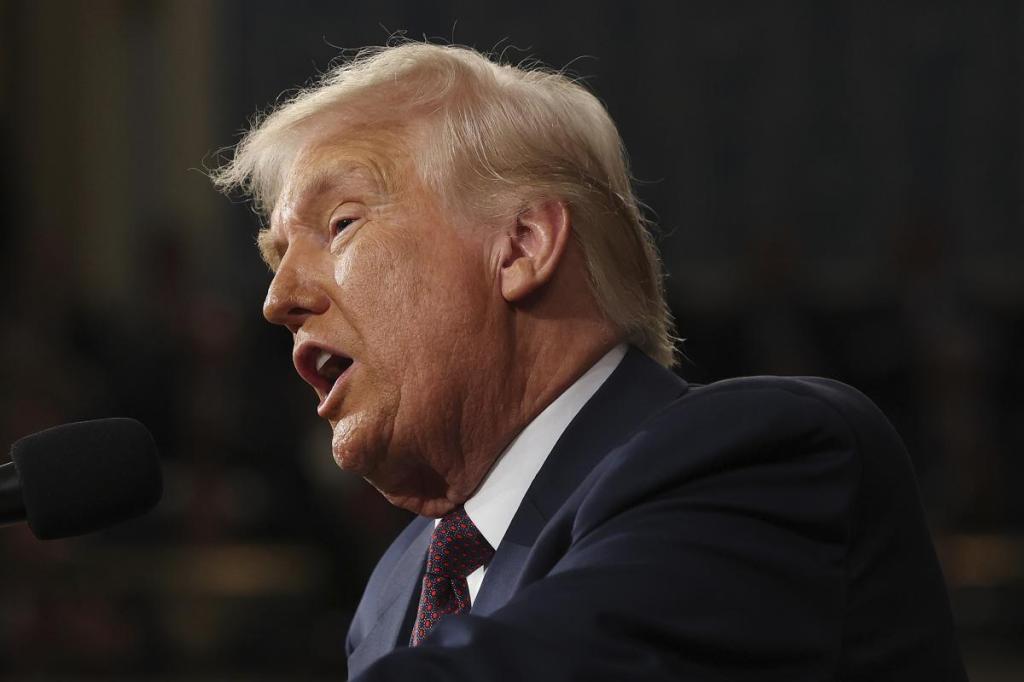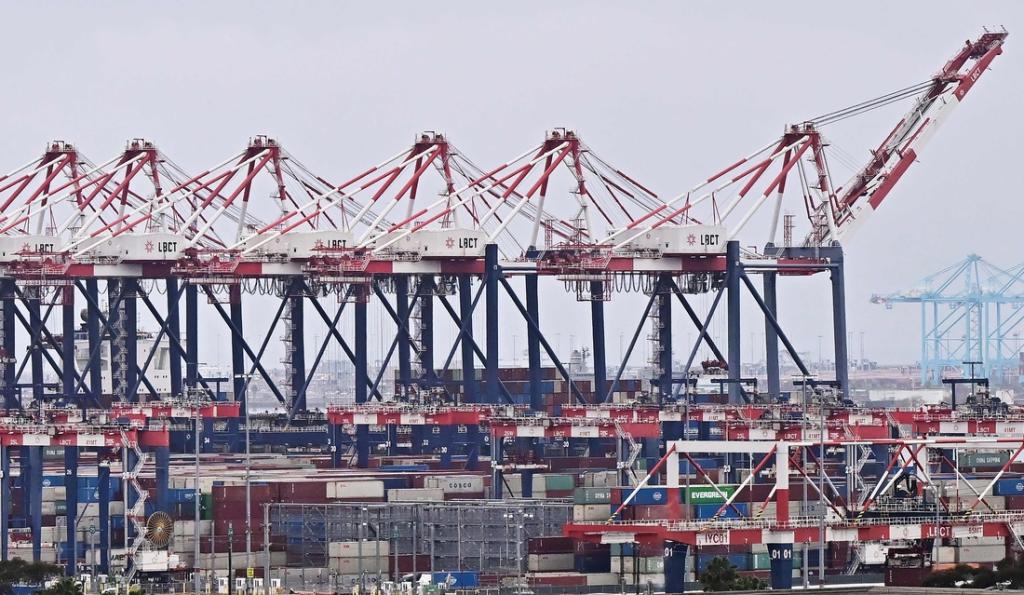Trump Suspends Tariffs on Mexico and Canada Amid Trade Changes
Trump's suspension of tariffs on Mexico and Canada reshapes trade relations, impacting the automotive industry and diplomatic dynamics in North America.

Key Points
- Trump's recent suspension of 25% tariffs on Mexico and Canada
reflects a strategic move to stabilize trade amid economic pressures.
- The automotive industry significantly influenced this decision, aiming to avoid job losses and rising vehicle costs for consumers.
- Diplomatic tensions remain high, particularly with Canada, as ongoing negotiations affect future trade relations and tariffs.
In a surprising move that has sparked both interest and confusion,
announced on April 6 that he would suspend the 25% tariffs on products from Canada and Mexico for a period of one month. This decision comes after a tumultuous period in U.S.-Mexico-Canada relations, particularly concerning trade agreements and border security issues. This tariff suspension is not just an economic maneuver but signals a strategic shift in diplomacy.

The Context of Tariffs
On April 4, Trump had initially imposed these tariffs in an effort to curb the influx of illegal substances like fentanyl across the southern border. This was deemed necessary to protect U.S. citizens and has been a consistent point of leverage in negotiations with both Canada and Mexico. However, as economic indicators showed rising trade deficits and stock prices fluctuating, the administration re-evaluated its approach.
The latest decision to suspend these tariffs applies to around 50% of Mexican products and 37% of Canadian products and comes just two days after their implementation. Such rapid policy shifts underline the complexity and unpredictability of trade relations under the Trump administration.
Business Response and Economic Implications
Businesses, particularly within the U.S. automotive industry, have been vocal about the adverse effects of these tariffs. Executives from major car manufacturers like
, Ford, and
have communicated their concerns regarding the skyrocketing costs of vehicles, which could rise by thousands of dollars due to these tariffs. This prompted the administration to grant a reprieve, illustrating that the voice of industry can significantly influence policy decisions.
The automotive sector plays a critical role in both the U.S. economy and employment, and the suspension of tariffs is also seen as an effort to stabilize this vital industry. It allows manufacturers time to adjust without the added burden of tariffs, potentially saving jobs and maintaining lower consumer prices.
Diplomatic Layering
While the suspension primarily aims to alleviate immediate economic pressures, it is also steered by political currents. Trump's dialogue with Mexican President
shows a willingness to engage diplomatically while maintaining firm positions on border security and drug trafficking. Notably, the communications between Trump and Canadian Prime Minister
were marked by tension, as Trump criticized Trudeau for what he perceives as negligence regarding tariff issues. This back-and-forth highlights the intricate balance of diplomacy and economics in international relations.
Beyond simply a tariff suspension, the approach taken by the Trump administration suggests a broader strategy of leveraging economic policy as a tool for diplomatic engagement. With the looming deadline of April 2 for potential additional tariffs on other countries, the administration is firmly holding its cards close to its chest, creating an atmosphere of uncertainty.
A Future of Uncertainty
The announcement has sent ripples through financial markets, with stock prices in the automotive sector seeing an uptick following the suspension news. Nonetheless, experts caution that while the short-term outlook appears positive, the long-term strategy remains convoluted. The uncertainty surrounding future tariffs continues to loom, with many in the business community expressing concern about the lack of clarity from the administration. Such unpredictability may lead businesses to delay investments and hiring decisions, potentially causing economic stagnation.
As we look ahead, the stability of trade relations between the U.S., Mexico, and Canada will hinge on the administration’s ability to balance immediate economic needs with longer-term strategic goals. A clear communication strategy will be crucial to navigate these turbulent waters.
In summary, the recent suspension of tariffs on Mexico and Canada underscores the multifaceted nature of trade policy in the current U.S. administration. The interplay of economic demands, business interests, and diplomatic negotiations paints a dynamic picture that will require careful monitoring as developments unfold in the upcoming month. The actions taken now may pave the way for future relationships and trade agreements, influencing not just North American economies, but global trade dynamics as well.


